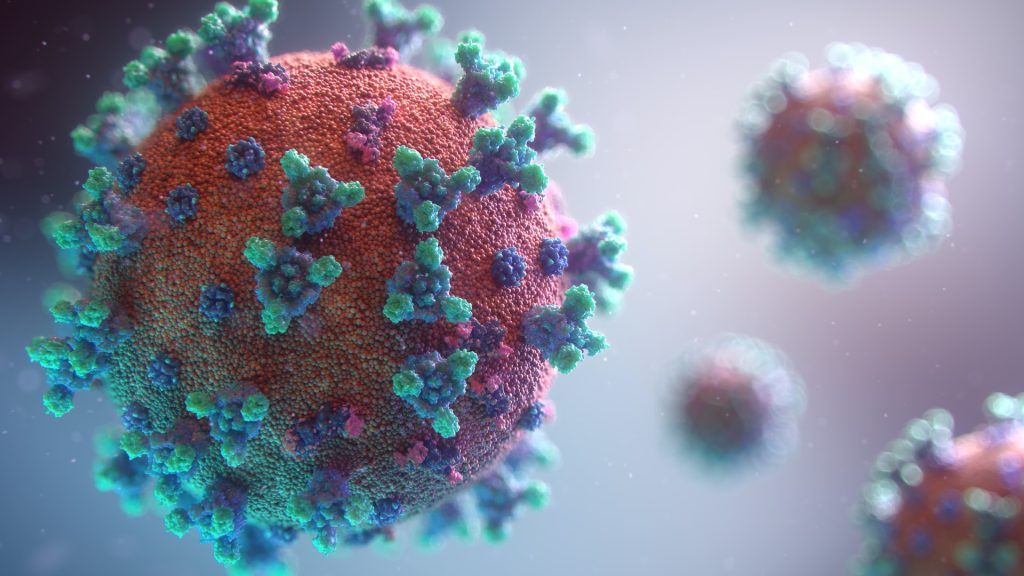
A new study found that about half of hospitalised COVID patients at the start of the pandemic developed new cases of hyperglycemia and had poorer outcomes, prompting concerns about waves of COVID-caused diabetes.
“These people were not diabetic before,” said lead author Paolo Fiorina, MD, PhD, who is affiliated with the Division of Nephrology at Boston Children’s Hospital. “But during admission, about 46 percent of the patients were found to have new hyperglycaemia.” About 35 percent of the newly hyperglycaemic patients were still so six months after infection.
New cases of post-COVID diabetes had been observed since the first waves of the COVID pandemic, though the mechanism behind it was not understood at the time.
The study examined 551 people admitted to the hospital in Italy from March to May 2020, with follow-ups up to six months. All patients were fitted with a glucose sensor at admission.
Compared with patients without signs of glucose abnormalities, the hyperglycaemic patients had worse clinical concerns: longer hospitalisations, worse clinical symptoms, and greater need for oxygen, ventilation and intensive care treatment.
“We wanted to understand the mechanism why these patients did poorly compared to those who did not have hyperglycemia,” said Fiorina, who previously authored a paper showing COVID worsened glucometabolic control in diabetics. The current study was published in Nature Metabolism.
Over the course of time, the researchers detected many abnormalities in glucose metabolic control in the hyperglycaemic patients. They also found that hyperglycaemic patients had abnormal hormonal levels: “We discovered they were severely hyperinsulinaemic; they produced too much insulin,” said Fiorina. They also had abnormal levels of pro-insulin and markers of impaired islet beta cell function.
“Basically, the hormonal profile suggests that the endocrine pancreatic function is abnormal in those patients with COVID and it persists long after recovery,” he said.
Hyperglycaemic patients also had severe abnormalities in levels of inflammatory cytokines, including IL-6.
“We thought that blocking IL-6, and potentially even other cytokines, would be a benefit for beta cell function,” added Fiorina, an idea that proved to work. Patients treated with anti-IL-6 therapy (tocilizumab) had greater improvement in glycaemic control compared.
While glucometabolic abnormalities gradually reduced for some (particularly after COVID infection), other issues persisted: many patients had higher post-prandial glucose levels and abnormal pancreatic hormones after COVID.
“This study is one of the first to show that COVID has a direct effect on the pancreas,” said Fiorina. “It indicates that the pancreas is another target of the virus affecting not only the acute phase during hospitalisation but potentially also the long-term health of these patients.”
The study highlights the importance of evaluating pancreatic function in patients hospitalised for COVID. “This goes beyond fasting glucose testing because we observed glucose metabolic abnormalities during the day which were not always present in a normal fasting test,” said Fiorina.
Questions remain as to whether patients should be treated just with an anti-diabetic drug like an insulin sensitiser, or should anti-inflammatory drugs like tocilizumab and other drugs be used?
“If you keep targeting and blocking insulin, but you have a strong and chronic inflammation, it may lead to chronic damage,” said Dr Fiorina, who suggested that larger studies to test anti-diabetic and anti-inflammatory treatment are needed. “When you consider how many patients have been hospitalised with COVID and continue to be worldwide, we may see a huge increase in the diabetic population.”
Source: Children’s Hospital Boston
Journal information (1): Laura Montefusco et al, Acute and long-term disruption of glycometabolic control after SARS-CoV-2 infection, Nature Metabolism (2021). DOI: 10.1038/s42255-021-00407-6
Journal information (2): Sebastiano Bruno Solerte et al, Sitagliptin Treatment at the Time of Hospitalization Was Associated With Reduced Mortality in Patients With Type 2 Diabetes and COVID-19: A Multicenter, Case-Control, Retrospective, Observational Study, Diabetes Care (2020). DOI: 10.2337/dc20-1521

